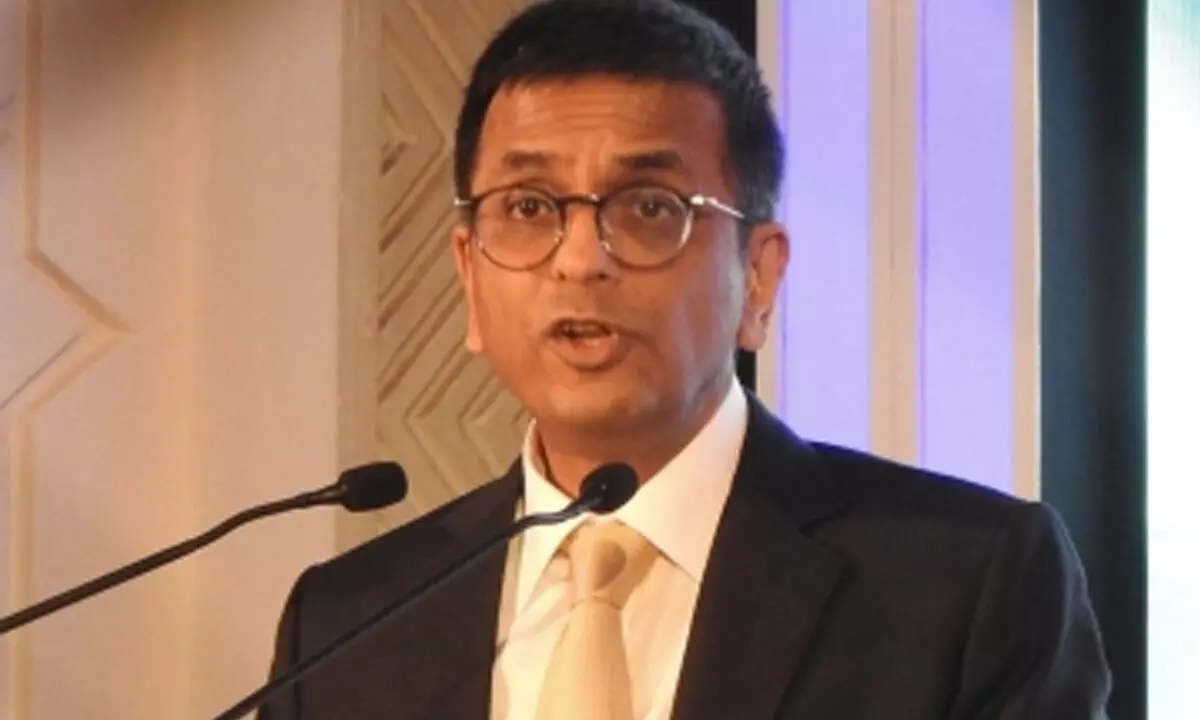Live
- TDP, JSP, YSRCP urged to oppose Wakf Bill
- T-SAT to launch new programme on ‘General Studies’
- Cops silence deafening noise of 100 bikes
- Guv inaugurates medical screening camp for Raj Bhavan staff
- Job fair for pharmacist roles tomorrow
- New ration cards to be issued in January
- Job mela at Masab Tank tomorrow
- New toilets facilitated for MPP school students
- Steps to safeguard natural springs gain momentum
- RWAs want officials to clear fog over SCB-GHMC merger
Just In
SC to constitute 7-judge bench to hear money bills issue soon: CJI

Chief Justice of India (CJI) D.Y. Chandrachud on Friday said that he would soon be constituting a seven-judge bench to address the money bill issue.
New Delhi: Chief Justice of India (CJI) D.Y. Chandrachud on Friday said that he would soon be constituting a seven-judge bench to address the money bill issue.
While replying to Senior Advocate Menaka Guruswamy, the CJI said that he was listing all pending seven-judge matters and nine-judge matters for directions next week.
Appearing before the 3-judge bench comprising the CJI, Justice J.B. Pardiwala and Justice Manoj Misra, the Senior Advocate drew their attention to the matter of the money bills and said that a seven-judge bench was to be constituted.
"This is about the money bills. The specific challenge is to the PMLA," Guruswamy said.
According to Article 110 of the Indian constitution, a money bill is a bill that has provisions regarding imposition, abolition, remission, alteration or regulation of any tax; regulating government borrowings and financial obligations, custody, and flow of funds from the Consolidated Fund of India.
The matter of the money bill came into question when the Centre passed the Aadhaar Act in 2016. The Rajya Sabha cannot amend or reject a money bill. The Centre introduced the Aadhaar Bill in Parliament as a money bill. It was alleged that since the government lacked a majority in the Rajya Sabha it introduced the Bill as a money bill to circumvent the Upper House of Parliament.
The amendments made to the Prevention of Money Laundering Act (PMLA) were introduced as money bills.
The apex court has earlier upheld the constitutional validity of the PMLA, but it is yet to decide whether the amendments to the PMLA can be passed as a money bill.
The seven-judge constitutional bench will address this question.

© 2024 Hyderabad Media House Limited/The Hans India. All rights reserved. Powered by hocalwire.com






